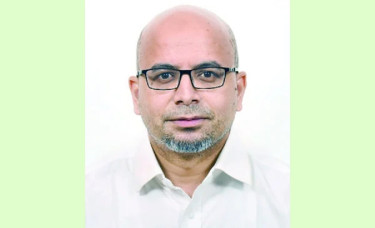More News
Trending
- Govt to announce decision on implementing ‘July National Charter’ today
- Govt releases documentary titled 'Trial of July Massacre'
- Not politics, but national unity is needed now
- Nation seeks unity, disunity spells disaster
- Internet freedom declines in US, Germany: study
- Referendum to be held on national election day: CA Yunus
- Protesters set fire to Awami League office in Gulistan
- July Charter implementation order issued
- Chief justice expresses deep concern over killing of Rajshahi judge’s son
- CA’s speech violates July Charter: Salahuddin
- Crimes against humanity: Hasina's verdict on 17 November
- ICT to fix Hasina verdict date today, security beefed up
- AI Integration into Tertiary Education: Opportunities and Challenges
- Riyadh's Al-Suwaidi Park turns into mini Bangladesh
- Record-breaking US shutdown ends as political fallout begins
- 47 first-class officers on jobs for 13 years through forgery
- India dubs Delhi car blast as terror act
- Nine bank accounts of journo Subhash Singh Roy frozen
- BNP inaugurates month-long video competition centred on ex-president Ziaur Rahman
- Toyota announces $10 bn US investment
- People’s aspirations ignored by calling two votes on same day: Parwar
- Bangladesh to open embassies in Dublin and Buenos Aires
- Looted wealth spread across home and abroad
- Taijul becomes third Bangladeshi bowler to claim 500 First-Class wickets
- Discussion on role of youth leadership in social change held at RU
- Commission will lose neutrality if players do not cooperate: CEC
- Trump signs deal to end longest US government shutdown in history
- Ali Riaz becomes CA’s special assistant
- Editors’ Council gets new body
- DU VC nominated as Bangladesh’s next ambassador to Denmark




